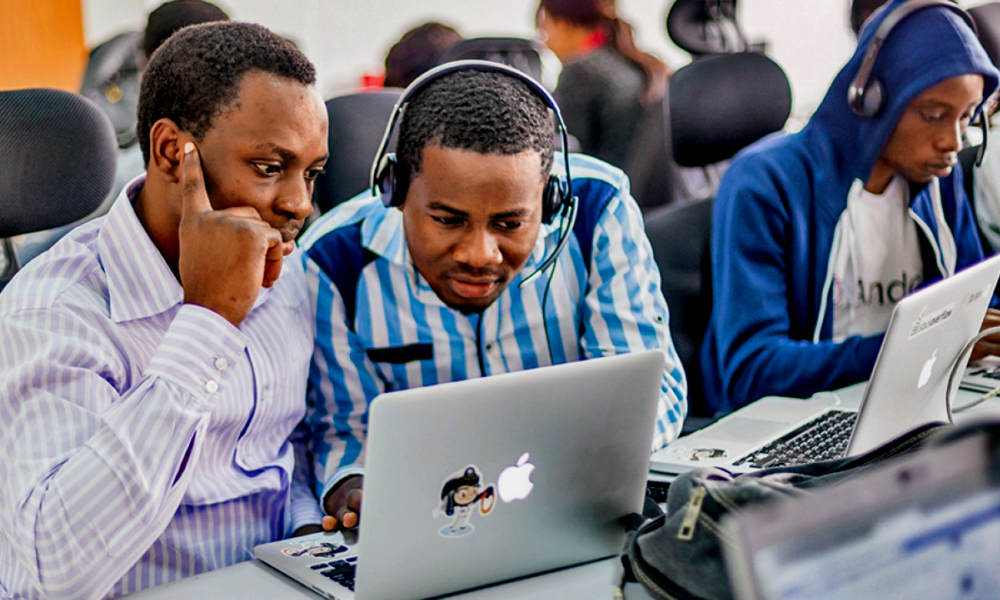Despite economic uncertainties, African startups continue to capture investor attention, with total funding exceeding $2 billion last year. While this marks a return to pre-pandemic levels, the landscape remains cautious, shaped by a tightening global venture capital market.
A decline in mega-deals has led investors—both local and international—to prioritize sustainable business models with clear profitability paths. Startups that failed to meet these expectations faced difficulties, resulting in high-profile closures such as Copia, a mobile commerce platform, and Gro Intelligence, an agri-data analytics firm that had once secured $850 million in funding.
The shift is evident: while early-stage failures were once common, even well-funded growth-stage and late-stage startups are now navigating higher risks. In response, some have opted for strategic pivots. B2B e-commerce giants Wasoko and MaxAB, for instance, merged operations to conserve cash and leverage industry synergies.
On the other hand, resilient players like Moniepoint, Moove, and TymeBank have thrived, securing investments from Uber, Google, and Nubank, respectively. Their success highlights Africa’s evolving tech ecosystem—one that presents both immense challenges and unparalleled opportunities.
With this backdrop, let’s take a closer look at the billion-dollar startups that continue to dominate the African tech scene, along with the emerging players poised to join their ranks.
Africa’s Unicorns: The Billion-Dollar Club
Flutterwave ($3 billion, 2021)
Founded in 2018, this Nigerian fintech facilitates seamless payments for businesses and individuals across Africa. Backed by investors such as Tiger Global and DST Global, Flutterwave has raised over $475 million, including a $250 million Series D.
OPay ($2 billion, 2021)
A digital financial powerhouse, OPay provides mobile payments, savings, and lending services. Initially launched as an offshoot of Opera, the startup has raised over $500 million, with SoftBank Vision Fund 2 among its key investors.
Wave ($1.7 billion, 2021)
Headquartered in Senegal, Wave is revolutionizing mobile money in Francophone Africa. The company raised a $200 million Series A from Stripe, Sequoia Heritage, and Founders Fund.
Andela ($1.5 billion, 2021)
This global talent marketplace connects companies with vetted software engineers and tech professionals. Backed by SoftBank and the Chan Zuckerberg Initiative, Andela has secured over $380 million in funding.
TymeBank ($1.5 billion, 2024)
A South African digital bank catering to underserved communities, TymeBank raised $250 million in Series D funding from Nubank, Tencent, and other investors.
Chipper Cash ($1.25 billion, 2021)
This pan-African fintech enables cross-border money transfers, card services, and investments. It has raised over $300 million from investors including FTX and Bezos Expeditions.
Interswitch ($1 billion, 2019)
A Nigerian payments giant, Interswitch provides infrastructure solutions for financial transactions. With over $300 million in funding, Visa is among its notable backers.
MNT-Halan ($1 billion, 2023)
Egypt’s financial super app offers digital lending, payments, e-commerce, and BNPL (buy now, pay later) solutions. It has raised over $500 million from investors such as Chimera Investments and Apis Growth Fund.
Moniepoint ($1 billion, 2024)
A fast-growing Nigerian fintech, Moniepoint provides digital banking and payment solutions tailored for businesses. It secured $110 million in Series C funding, with backing from Google’s Africa Investment Fund and Lightrock.
The Next Wave: Africa’s “Soonicorns”
PalmPay ($800M–$900M)
A Nigerian fintech offering money transfers, bill payments, and credit services, PalmPay has raised $140 million and is backed by Transsion Holdings and AfricInvest.
Moove ($750M)
A mobility fintech providing vehicle financing for gig workers, Moove has raised over $409 million, with Uber leading its recent $100 million Series B.
Yassir ($600M–$800M)
Operating a super app in Algeria, Yassir offers ride-hailing, food delivery, and financial services. It has secured nearly $200 million in funding.
Kuda ($500M)
A digital-only bank offering seamless financial services, Kuda has raised over $90 million from Target Global and Valar Ventures.
Wasoko/MaxAB ($500M)
Following their merger, these B2B e-commerce platforms now form Africa’s largest digital marketplace for informal retail. They have collectively raised $240 million.
Clickatell ($500M)
Specializing in chat commerce, Clickatell enables businesses to connect with customers via SMS and WhatsApp. It has secured over $100 million in funding.
M-KOPA ($500M–$600M)
A Kenyan pay-as-you-go lender for smartphones and digital financial services, M-KOPA has raised over $500 million from Sumitomo and Standard Bank Group.
Yoco ($400M–$500M)
A South African fintech providing payment solutions for SMEs, Yoco has raised over $107 million from Dragoneer Investment Group and Breyer Capital.
Onafriq ($300M–$500M)
Formerly MFS Africa, Onafriq operates the continent’s largest digital payments hub, enabling cross-border transactions. It has raised over $300 million from AfricInvest and Admaius Capital Partners.
A Tech Ecosystem in Transition
The African startup landscape is in a state of transformation. While some companies struggle with funding constraints, others continue to expand, driven by strategic investments and innovative models. As the continent’s tech ecosystem matures, these unicorns and soonicorns will play a crucial role in shaping Africa’s digital future.
















